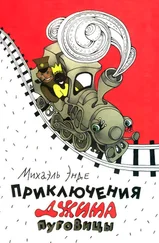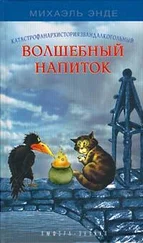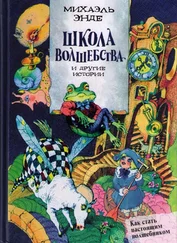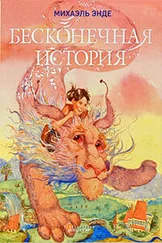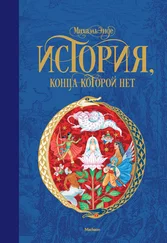Михаэль Энде - The Neverending Story
Здесь есть возможность читать онлайн «Михаэль Энде - The Neverending Story» весь текст электронной книги совершенно бесплатно (целиком полную версию без сокращений). В некоторых случаях можно слушать аудио, скачать через торрент в формате fb2 и присутствует краткое содержание. Год выпуска: 1997, ISBN: 1997, Издательство: Dutton Children's Books, Жанр: Детская проза, fairy_fantasy, на английском языке. Описание произведения, (предисловие) а так же отзывы посетителей доступны на портале библиотеки ЛибКат.
- Название:The Neverending Story
- Автор:
- Издательство:Dutton Children's Books
- Жанр:
- Год:1997
- ISBN:9780525457589
- Рейтинг книги:3 / 5. Голосов: 1
-
Избранное:Добавить в избранное
- Отзывы:
-
Ваша оценка:
- 60
- 1
- 2
- 3
- 4
- 5
The Neverending Story: краткое содержание, описание и аннотация
Предлагаем к чтению аннотацию, описание, краткое содержание или предисловие (зависит от того, что написал сам автор книги «The Neverending Story»). Если вы не нашли необходимую информацию о книге — напишите в комментариях, мы постараемся отыскать её.
The Neverending Story — читать онлайн бесплатно полную книгу (весь текст) целиком
Ниже представлен текст книги, разбитый по страницам. Система сохранения места последней прочитанной страницы, позволяет с удобством читать онлайн бесплатно книгу «The Neverending Story», без необходимости каждый раз заново искать на чём Вы остановились. Поставьте закладку, и сможете в любой момент перейти на страницу, на которой закончили чтение.
Интервал:
Закладка:
The Sea of Mist, which they called the Skaidan, was an enormous ocean of white vapor, which divided the two parts of Fantastica from each other. No one had ever found out how deep the Skaidan was or where all this mist came from. It was quite possible to breathe below the surface of the mist, and to walk some distance on the bottom of the sea near the coast, where the mist was relatively shallow, but only if one was tied to a rope and could be pulled back. For the mist had one strange property: it fuddled one’s sense of direction. Any number of fools and daredevils had died in the attempt to cross the Skaidan alone and on foot. Only a few had been rescued. The only way to reach the other side was in the ships of the Yskalnari.
The wickerwork, from which the houses, implements, clothing, and ships of Yskal were made, was woven from a variety of rushes that grew under the surface of the sea not far from the shore. These rushes—as can easily be gathered from the foregoing—could be cut only at the risk of one’s life. Though unusually pliable and even limp in ordinary air, they stood upright in the sea, because they were lighter than the mist. That was what made the wickerwork ships mistworthy. And if any of the Yskalnari chanced to fall into the mist, his regular clothing served the purpose of a life jacket.
But the strangest thing about the Yskalnari, so it struck Bastian, was that the word “I” seemed unknown to them. In any case, they never used it, but in speaking of what they thought or did always said “we.”
When he gathered from the conversation that the three sailors would be putting out to sea that night, he asked if he could ship with them as a cabin boy. They informed him that a voyage on the Skaidan was very different from any other ocean voyage, because no one knew how long it would take or exactly where it would end up. When Bastian said that didn’t worry him, they agreed to take him on.
At nightfall the mists began to rise and by midnight they had reached the level of Basketville. The ships that had been dangling in midair were now floating on the white surface. The moorings of the one on which Bastian found himself—a flat barge about a hundred feet long—were cast off, and it drifted slowly out into the Sea of Mist.
The moment he laid his eyes on it, Bastian wondered what propelled this sort of ship, since it had neither sails nor oars nor propeller. He soon found out that sails would have been useless, for there was seldom any wind on the Skaidan, and that oars and propellers do not function in mist. These ships were moved by an entirely different sort of power.
In the middle of the deck there was a round, slightly raised platform. Bastian had noticed it from the start and taken it for a sort of captain’s bridge. Indeed, it was occupied throughout the voyage by two or more sailors. (The entire crew numbered fourteen.) The men on the platform held one another clasped by the shoulders and looked fixedly forward. At first sight, they seemed to be standing motionless. Actually they were swaying very slowly, in perfect unison—in a sort of dance, which they accompanied by chanting over and over again a simple and strangely beautiful tune.
At first Bastian regarded this song and dance as some sort of ceremony, the meaning of which escaped him. Then, on the third day of voyage, he asked one of his three friends about it. Evidently surprised at Bastian’s ignorance, the sailor explained that those men were propelling the ship by thought-power.
More puzzled than ever, Bastian asked if some sort of hidden wheels were set in motion.
“No,” one of the sailors replied. “When you want to move your legs, you have only to think about it. You don’t need wheels, do you?”
The only difference between a person’s body and a ship was that to move a ship at least two Yskalnari had to merge their thought-powers into one. It was this fusion of thought-powers that propelled the ship. If greater speed was desired, more men had to join in. Normally, thinkers worked in shifts of three; the others rested, for easy and pleasant as it looked, thought-propulsion was hard work, demanding intense and unbroken concentration. But there was no other way of sailing the Skaidan.
Bastian became the student of the mist navigators and learned the secret of their cooperation: dance and song without words.
Little by little, in the course of the long voyage, he became one of them. During the dance he felt his thought-power merging with those of his companions to form a whole, and this gave him a strange and indescribable sense of harmony and self-forgetfulness. He felt accepted by a community, at one with his companions—and at the same time he totally forgot that the inhabitants of the world from which he came, and to which he was seeking the way back, were human beings, each with his own thoughts and opinions. Dimly he remembered his home and parents, but nothing more.
His wish to be no longer alone had come true. But now, deep in his heart, a new wish arose and began to make itself felt.
One day it struck him that the Yskalnari lived together so harmoniously, not because they blended different ways of thinking, but because they were so much alike that it cost them no effort to form a community. Indeed, they were incapable of quarreling or even disagreeing, because they did not regard themselves as individuals. Thus there were no conflicts or differences to overcome, and it was just this sameness, this absence of stress that gradually came to pall on Bastian. Their gentleness bored him and the unchanging melody of their songs got on his nerves. He felt that something was lacking, something he hungered for, but he could not yet have said what it was.
This became clear to him sometime later when a giant mist crow was sighted. Stricken with terror, the sailors vanished below deck as fast as they could. But one was not quick enough; the monstrous bird swooped down with a cry, seized the poor fellow, and carried him away in its beak.
When the danger was past, the sailors emerged and resumed their song and dance, as though nothing had happened. Their harmony was undisturbed, and far from grieving, they didn’t waste so much as a word on the incident.
“Why should we grieve?” said one of them when Bastian inquired. “None of us is missing.”
With them the individual counted for nothing. No one was irreplaceable, because they drew no distinction between one man and another.
Bastian, however, wanted to be an individual, a someone, not just one among others. He wanted to be loved for being just what he was. In this community of Yskalnari there was harmony, but no love.
He no longer wanted to be the greatest, strongest, or cleverest. He had left all that far behind. He longed to be loved just as he was, good or bad, handsome or ugly, clever or stupid, with all his faults—or possibly because of them.
But what was he actually like?
He no longer knew. So much had been given to him in Fantastica, and now, among all these gifts and powers, he could no longer find himself.
He stopped dancing with the mist sailors. All day long and sometimes all night as well, he sat in the prow, looking out over the Skaidan.
At last the crossing was completed and the mist ship docked. Bastian thanked the Yskalnari and went ashore.
This was a land full of roses, there were whole forests of roses of every imaginable color. A winding path led through the endless rose garden, and Bastian followed it.

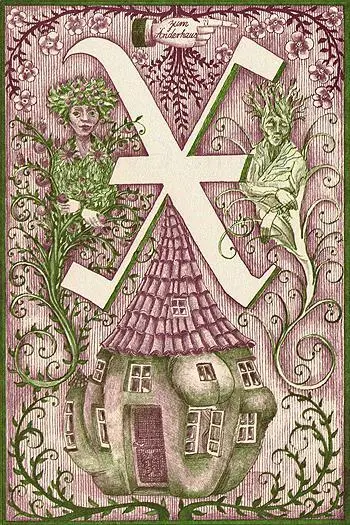 ayide’s end is soon told, but hard to understand and full of contradictions like many things in Fantastica. To this day many scholars and historians are racking their brains for an explanation of what happened, while some deny the whole incident or try to interpret it out of existence. Here we shall simply state the facts, leaving others to explain them as best they can.
ayide’s end is soon told, but hard to understand and full of contradictions like many things in Fantastica. To this day many scholars and historians are racking their brains for an explanation of what happened, while some deny the whole incident or try to interpret it out of existence. Here we shall simply state the facts, leaving others to explain them as best they can.
Интервал:
Закладка:
Похожие книги на «The Neverending Story»
Представляем Вашему вниманию похожие книги на «The Neverending Story» списком для выбора. Мы отобрали схожую по названию и смыслу литературу в надежде предоставить читателям больше вариантов отыскать новые, интересные, ещё непрочитанные произведения.
Обсуждение, отзывы о книге «The Neverending Story» и просто собственные мнения читателей. Оставьте ваши комментарии, напишите, что Вы думаете о произведении, его смысле или главных героях. Укажите что конкретно понравилось, а что нет, и почему Вы так считаете.


